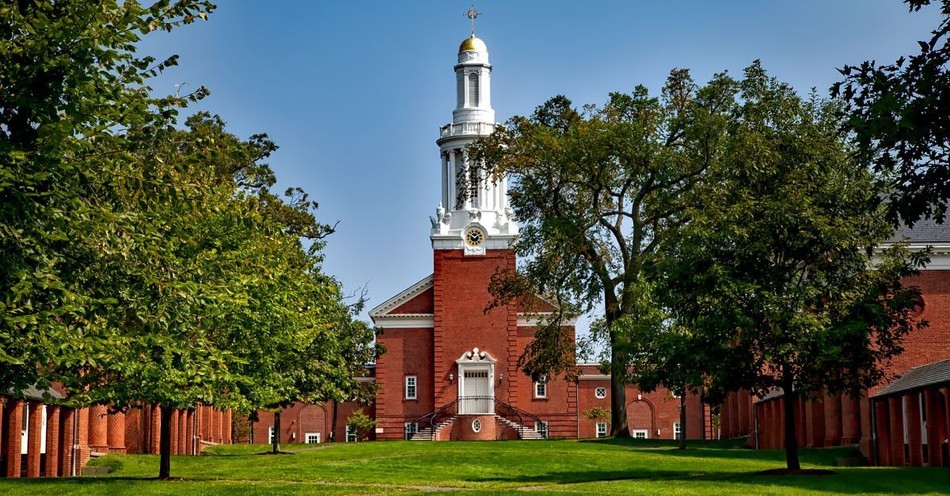In February, the Yale Law School chapter of the Federalist Society invited Kristen Waggoner of the Alliance Defending Freedom to speak on campus.
This, to put it mildly, didn’t go over well with some of the law school’s more “woke” students. Using talking points straight from the Southern Poverty Law Center, students protested Waggoner’s visit, calling the ADF a “homophobic, transphobic hate group.”
If that’s all that had happened, it would “merely” have been yet another example of progressive intolerance. However, the way things escalated makes clear how serious the on-campus threats to religious freedom have become, and just where those threats are coming from.
The protesters not only protested, they had a list of demands, including that Yale Law would make it “more difficult for students to work at ‘discriminatory’ organizations” like ADF and that the school would “consider denying admission to applicants who worked on certain religious liberty efforts before law school.”
As Yale Law School alum Samuel Adkisson wrote in USA Today, these kinds of demands are usually greeted with laughter. But not this time.
Not only did Yale cave into the demands, they went beyond them by announcing an expanded anti-discrimination policy. Under the new policy, employers who hire Yale students or graduates who benefit from the school’s “public-interest funding, its loan-repayment program, and its post-graduate fellowships,” must promise that they “will not consider an applicant’s ‘religion,’ ‘religious creed,’ ‘gender identity’ or ‘gender expression’” in the hiring decision.
The sound you hear is doors of opportunity for students slamming shut everywhere. Basically, any organization that runs afoul of the new sexual orthodoxy that’s driving this new policy, will find it much more difficult to recruit Yale Law School grads. And those grads whose motivations run toward non-profit or public service will find their choices significantly narrowed.
Yale’s blatant discrimination against people with traditional religious beliefs is an important reminder of where the greatest challenge to religious freedom currently lies in our culture.
As David French wrote at National Review, one of “the prime sources of [culture war] conflict is the increasing progressive tendency to use the financial and cultural power of progressive institutions to force social change regardless of the underlying mission of the institution.”
Think back to the controversy over Indiana’s attempt to enact a state-level Religious Freedom Restoration Act. The most vocal and well-funded opposition came from companies like Salesforce, which threatened to boycott the state, and Angie’s List, which said it would shelve plans to expand its headquarters in Indianapolis.
Even the NCAA, which is based in Indianapolis, threatened to no longer hold the Final Four in the city.
Private-sector threats to religious liberty are dangerous precisely because, unlike governments, universities or a Fortune 500 company aren’t covered by the First Amendment or RFRA. While they can run afoul of anti-discrimination laws, as French wrote, “we should not confuse Yale’s actions with a constitutional violation.” Thus, legal recourse against Yale is unlikely.
This is another example where politics tends to be downstream from the rest of culture. As more and more private entities act in concert with activists who have declared traditional Christian morality beyond the pale, the more likely we are to see public policy follow suit.
And this allows private companies and colleges to divert attention from other things they’re doing, like dangerous working conditions in Chinese factories or trampling their customers’ privacy online or selling an education that delivers no return. Whenever they’re challenged, they simply yell, “Hey! Check out our rainbow flag!”
All of this is why corporate and academic wokeness, even more than the government, is a primary threat to religious freedom.
BreakPoint is a Christian worldview ministry that seeks to build and resource a movement of Christians committed to living and defending Christian worldview in all areas of life. Begun by Chuck Colson in 1991 as a daily radio broadcast, BreakPoint provides a Christian perspective on today’s news and trends via radio, interactive media, and print. Today BreakPoint commentaries, co-hosted by Eric Metaxas and John Stonestreet, air daily on more than 1,200 outlets with an estimated weekly listening audience of eight million people. Feel free to contact us at BreakPoint.org where you can read and search answers to common questions.
John Stonestreet, the host of The Point, a daily national radio program, provides thought-provoking commentaries on current events and life issues from a biblical worldview. John holds degrees from Trinity Evangelical Divinity School (IL) and Bryan College (TN), and is the co-author of Making Sense of Your World: A Biblical Worldview.
Publication date: April 23, 2019
Photo courtesy: Pixabay




